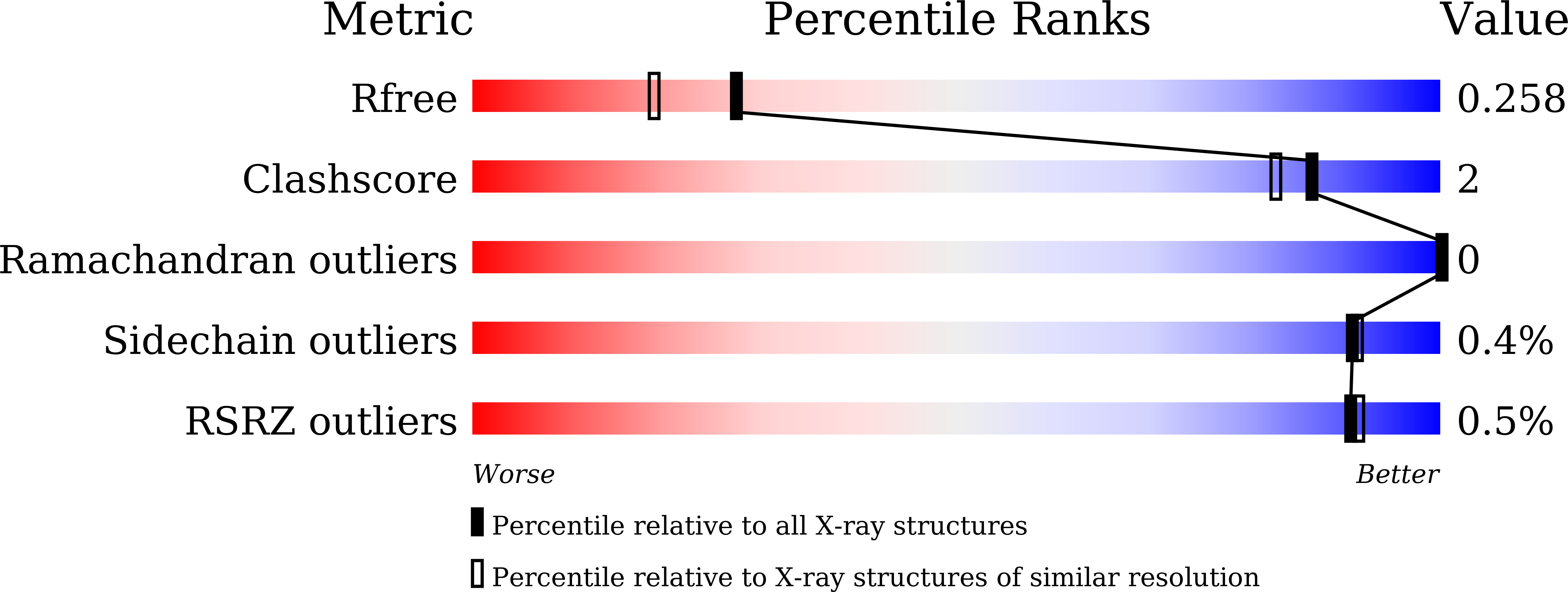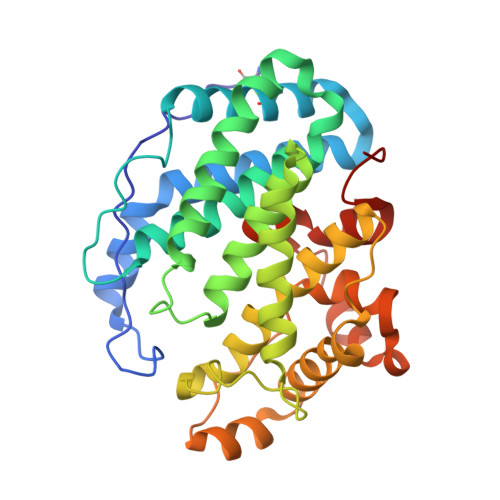Structural insights into the mechanism of pH-selective substrate specificity of the polysaccharide lyase Smlt1473.
Pandey, S., Mahanta, P., Berger, B.W., Acharya, R.(2021) J Biol Chem 297: 101014-101014
- PubMed: 34358563
- DOI: https://doi.org/10.1016/j.jbc.2021.101014
- Primary Citation of Related Structures:
7FHU, 7FHV, 7FHW, 7FHX, 7FHY, 7FHZ, 7FI0, 7FI1, 7FI2 - PubMed Abstract:
Polysaccharide lyases (PLs) are a broad class of microbial enzymes that degrade anionic polysaccharides. Equally broad diversity in their polysaccharide substrates has attracted interest in biotechnological applications such as biomass conversion to value-added chemicals and microbial biofilm removal. Unlike other PLs, Smlt1473 present in the clinically relevant Stenotrophomonas maltophilia strain K279a demonstrates a wide range of pH-dependent substrate specificities toward multiple, diverse polysaccharides: hyaluronic acid (pH 5.0), poly-β-D-glucuronic (celluronic) acid (pH 7.0), poly-β-D-mannuronic acid, and poly-α-L-guluronate (pH 9.0). To decode the pH-driven multiple substrate specificities and selectivity in this single enzyme, we present the X-ray structures of Smlt1473 determined at multiple pH values in apo and mannuronate-bound states as well as the tetra-hyaluronate-docked structure. Our results indicate that structural flexibility in the binding site and N-terminal loop coupled with specific substrate stereochemistry facilitates distinct modes of entry for substrates having diverse charge densities and chemical structures. Our structural analyses of wild-type apo structures solved at different pH values (5.0-9.0) and pH-trapped (5.0 and 7.0) catalytically relevant wild-type mannuronate complexes (1) indicate that pH modulates the catalytic microenvironment for guiding structurally and chemically diverse polysaccharide substrates, (2) further establish that molecular-level fluctuation in the enzyme catalytic tunnel is preconfigured, and (3) suggest that pH modulates fluctuations resulting in optimal substrate binding and cleavage. Furthermore, our results provide key insight into how strategies to reengineer both flexible loop and regions distal to the active site could be developed to target new and diverse substrates in a wide range of applications.
Organizational Affiliation:
School of Biological Sciences, National Institute of Science Education and Research, Bhubaneswar, Odisha, India; Homi Bhabha National Institute, Mumbai, Maharashtra, India.














